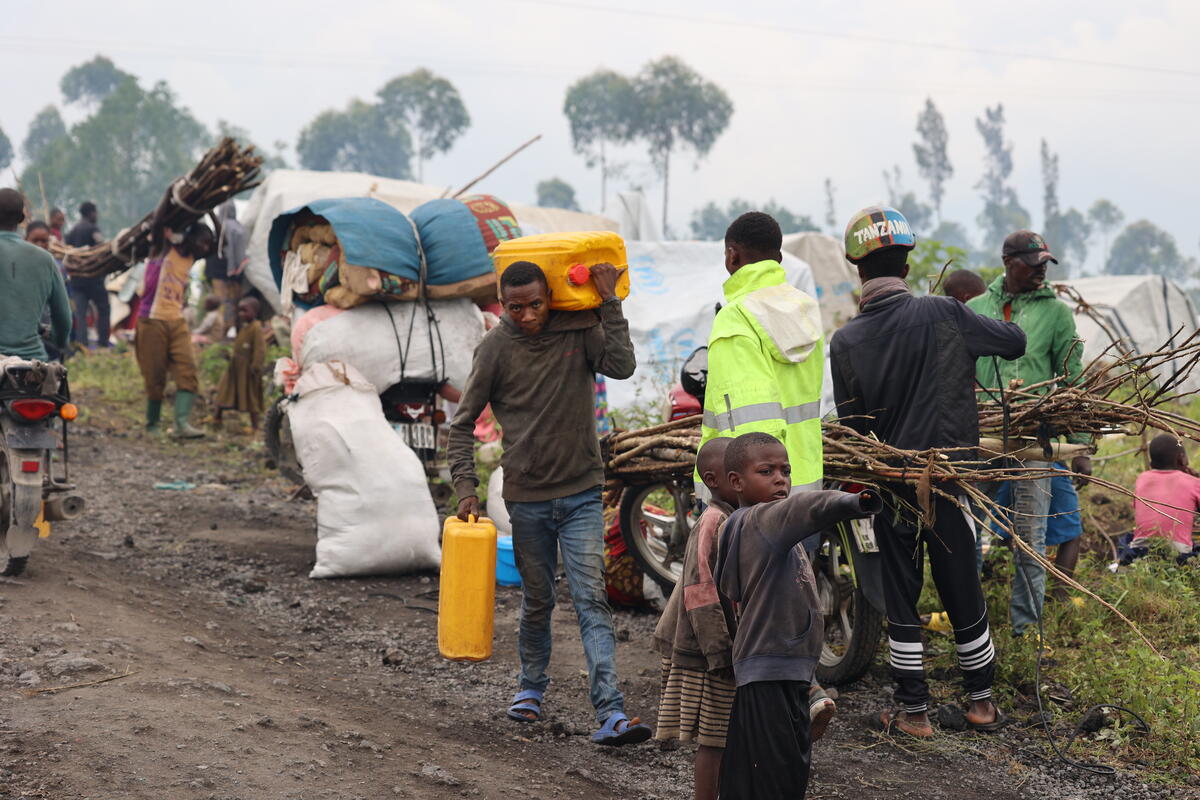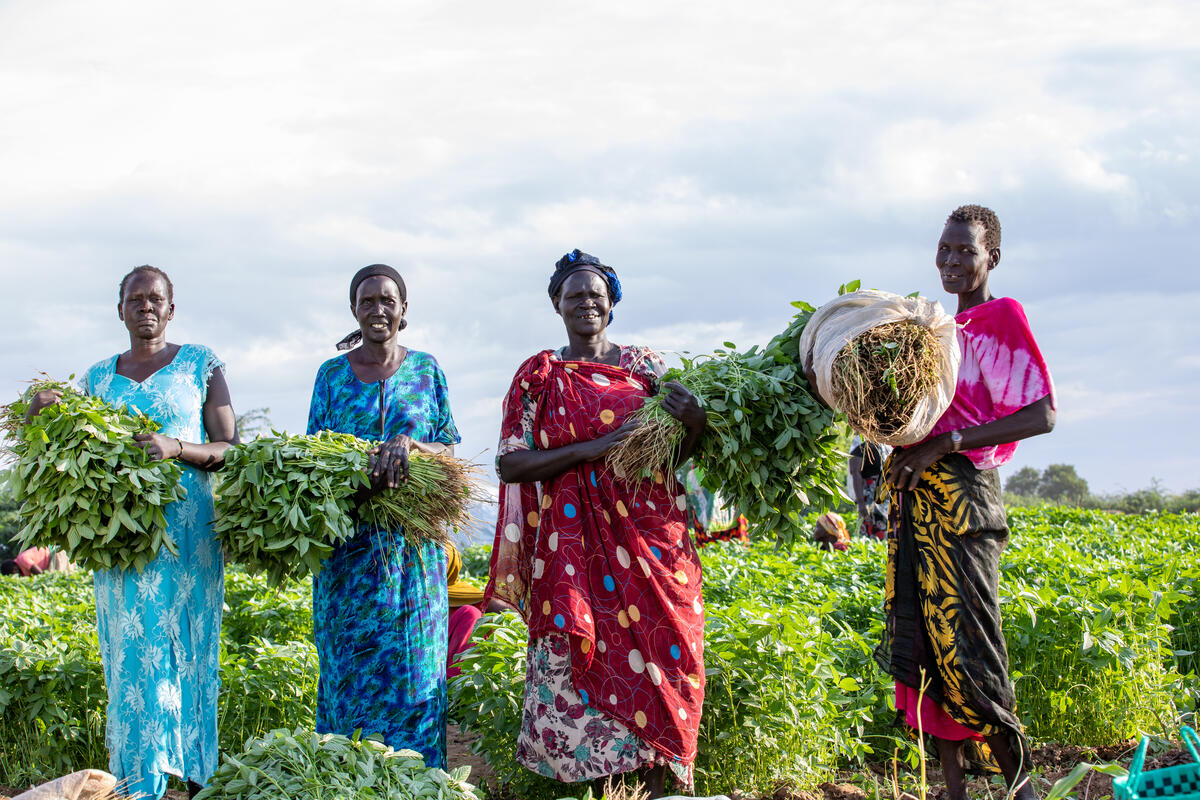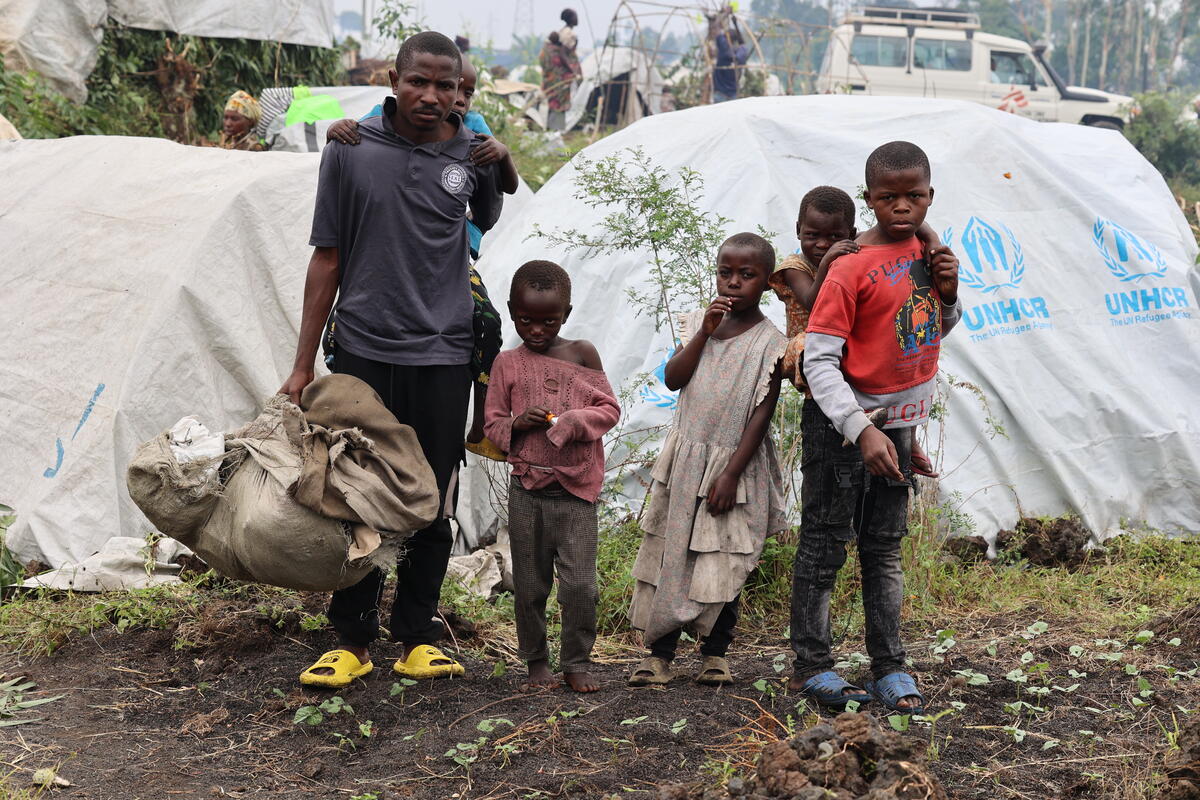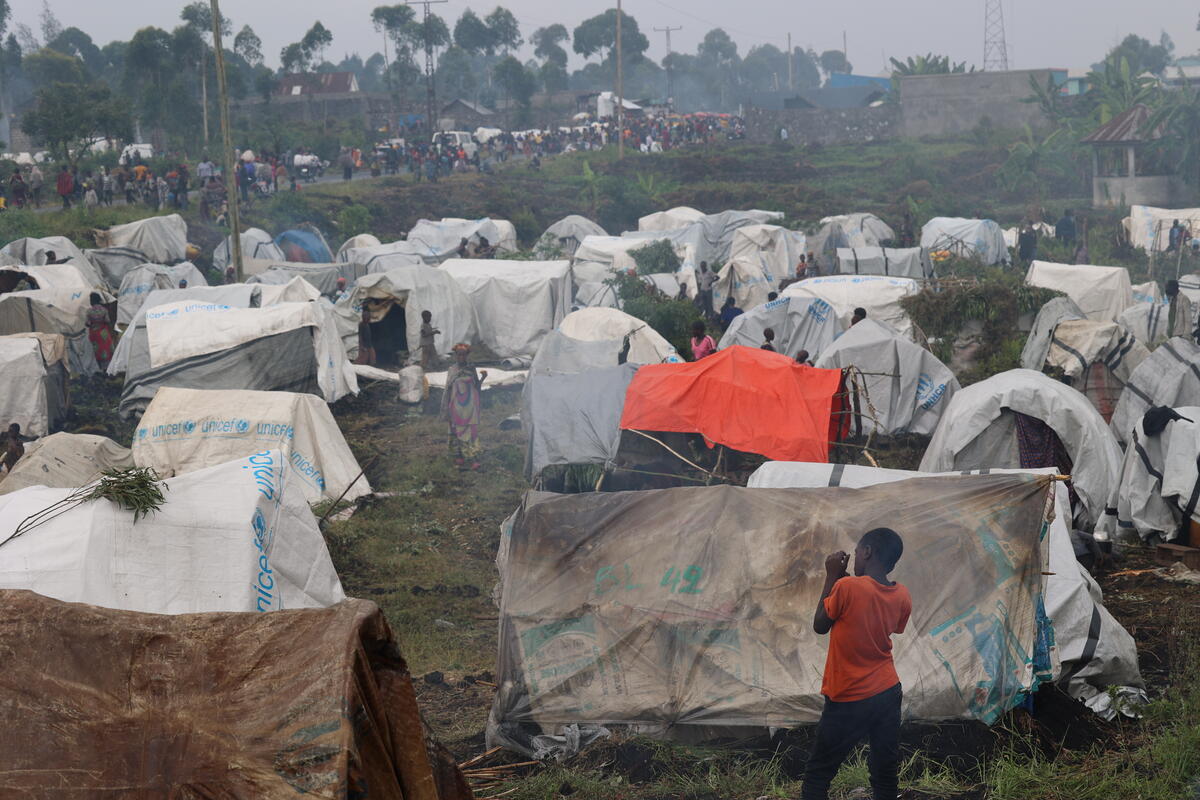Fewer forced returns to DR Congo; returnees face poor conditions
Fewer forced returns to DR Congo; returnees face poor conditions
GOMA, Democratic Republic of the Congo, September 17 (UNHCR) - Fewer Congolese refugees are going home under a forced repatriation movement from camps in Rwanda, but local intimidation continues and conditions are deteriorating for those who have already returned.
More than 8,000 Congolese refugees of Tutsi origin in Rwanda's Gihembe and Kiziba camps have gone back to the Democratic Republic of the Congo (DRC) under pressure since the repatriation operation started on August 31.
The pace of returns has slowed in recent days, falling from a high of 600 returnees in one day to fewer than 100 over the weekend. On Monday, Rwandan authorities registered 200 departures from Gihembe camp. By Tuesday morning, four trucks organised by local officials had arrived in the camp to transport the refugees home. Final figures of those departing were not immediately available.
Last Friday, the UN refugee agency started an information campaign in Gihembe and Kiziba camps to inform refugees that the return to DRC should be voluntary. Nonetheless, the refugees reported that intimidation was continuing, with local security forces banging on their doors and yelling that it was time they went back to their country.
So far, refugees from Gihembe camp have been transported by bus to Goma in eastern DRC. Those from Kiziba camp were bussed up to Lake Kivu, where a ferry took them across to Goma. From there, the refugees continued the ride to the village of Kitchanga, 80 km north of Goma.
Once on the DRC side, many returnees said they had left in a hurry, leaving behind personal belongings and even family members - an indication that they left under duress. Some, however, insisted they had left of their own will.
In Kitchanga, the women spoke more openly of being forcibly repatriated. One old woman from Gihembe camp was asked why she had returned. "They put us on buses and brought us here.... I came because the others came," she said between tears in her native tongue of Kinyarwanda. Whereupon the camp committee president who had been translating the interview suggested to her in Kinyarwanda that she had returned voluntarily.
The returnees gathered at Kitchanga are mostly women and children. They are currently occupying an abandoned factory, sleeping on the floor without mattresses and fearing that the little food they brought from Rwanda will run out soon. Others had sold their food at the beginning of the forced movement because they were uncertain about what they would be allowed to bring.
Many returnees UNHCR spoke to on Monday said the sanitation situation has become intolerable, with only three latrines for a population of 8,100. They need potable water and are asking for plastic sheeting to cover the floors and build shelters to protect them from rain leaking from the perforated roof. Most of the families that had brought their old plastic sheets from Rwanda are moving out of the factory buildings to set up makeshift shelters on the slopes of the surrounding hills.
A male returnee said living conditions were "difficult" and that the families camped there would return to their final destination in Masisi, a region located some 100 km north-west of Kitchanga, if they had the transport to do so.
Most of the returnees originated from Masisi. The few who live near Kitchanga have continued the journey home on foot. Equipped with walking sticks, they cut across the mountains, travelling between two and eight hours as they headed for Nyanzale, Birambizo, Bishusha, Burungu or Katsiru villages within a 30-km radius.
Meanwhile, three Congolese returnees have reportedly left Kitchanga and gone back to Gihembe camp in Rwanda. Two of them were seen in the camp on Monday. It was not clear if they had returned to fetch their families and belongings or if they intended to stay in Rwanda. UNHCR staff in Byumba, where Gihembe camp is located, said that there could be more returnees making their way back to Rwanda, although numbers were hard to verify.







